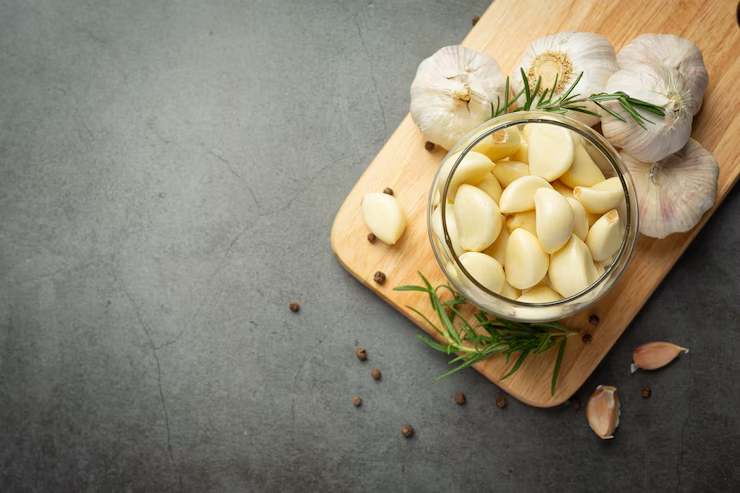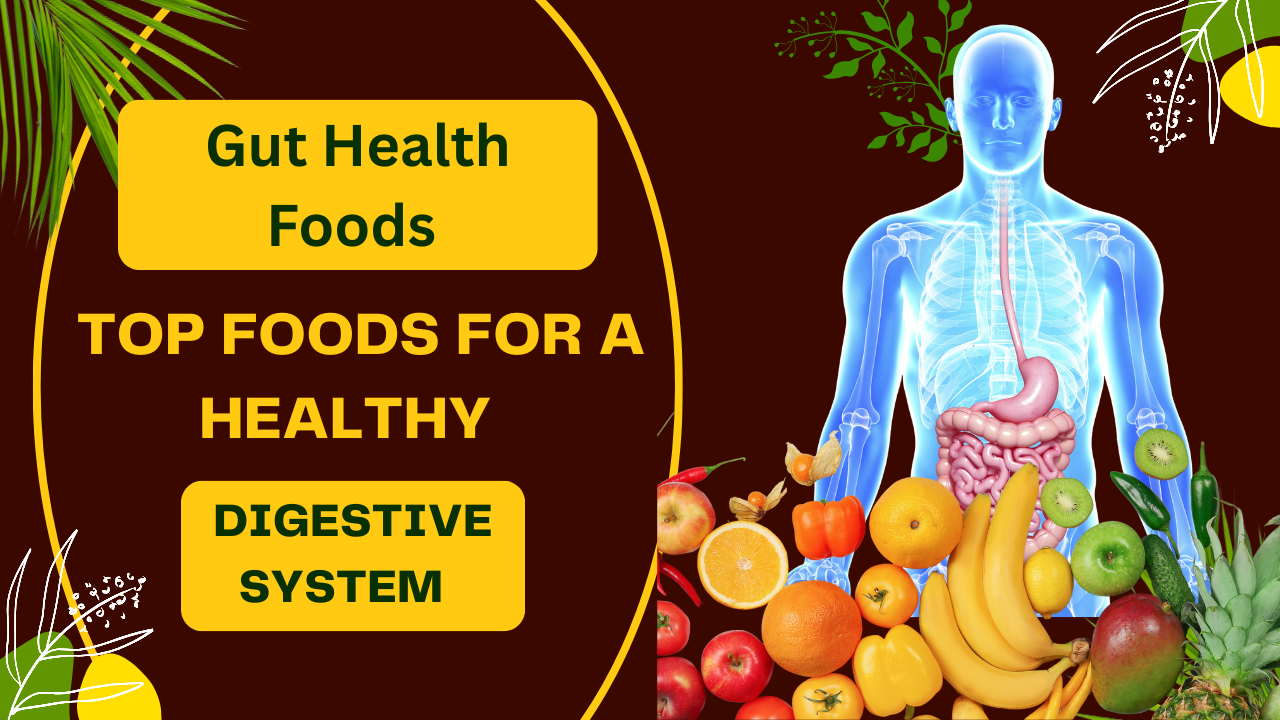Gut health has become an important focus in both wellness and medical discussions in recent years. Often called the “second brain,” your gut does much more than just digest food. It is closely linked to many key body functions, including how your immune system works and even how your brain feels and functions.
A healthy gut helps your body absorb nutrients better and protects you from harmful bacteria and toxins. It plays a major role in keeping your immune system strong and can influence your mood, energy levels, and overall health. When your gut is balanced, your whole body tends to function better.
One of the most effective ways to care for your gut is by eating a well-balanced diet. Foods rich in fiber, probiotics, and natural nutrients can support good bacteria in the digestive system. By making smart food choices, you can improve your gut health and enhance your overall well-being.
In this article, we will dive deep into the significance of gut health, its impact on various bodily functions, and the top eight gut health foods that can support and enhance your digestive system.
What is Gut Health ?
Gut health refers to the overall well-being of the digestive system, especially the balance of good and bad microorganisms living in the intestines. The gut contains trillions of bacteria, fungi, viruses, and other tiny organisms, collectively called the gut microbiota. These microbes are essential for breaking down food, making vitamins, and protecting the digestive tract from harmful germs.
When your gut is healthy, these microorganisms live in harmony and support your digestive system. This balance helps your body absorb nutrients, remove waste, and maintain energy levels. A well-functioning gut also supports your immune system and can influence your mood and mental clarity.
However, when the balance of these microbes is disturbed, it can lead to various digestive issues. Common causes include a poor diet, high stress levels, antibiotics, or certain illnesses. This imbalance can cause bloating, constipation, gas, diarrhea, and even more serious problems like irritable bowel syndrome (IBS) or leaky gut.
Including gut health foods in your daily meals is a great way to restore balance. Foods like yogurt, kefir, fiber-rich fruits, and fermented vegetables help support good bacteria and improve overall gut health.
The Importance of Gut Health

A healthy gut is essential for more than just digestion. Its influence spans a wide range of bodily functions:
Digestion and Nutrient Absorption: A healthy gut helps break down food properly and absorb important nutrients. When your gut is in balance, your body gets the full benefit from the meals you eat. Adding gut health foods like yogurt, fiber-rich fruits, and fermented vegetables can improve digestion and boost nutrient uptake.
Immune System Support: About 70–80% of your immune system is found in the gut. A strong gut with balanced bacteria helps the body fight off infections and stay healthy. Gut health foods, such as garlic, onions, and fermented items, help support this immune balance.
Mental Well-Being: Your gut and brain are closely connected. An unhealthy gut may increase anxiety, depression, or mood swings. Including gut health foods like leafy greens and probiotic-rich meals can support mental clarity and mood.
Weight Control: Gut bacteria affect how your body handles fat and stores energy. Eating gut health foods like whole grains, legumes, and probiotics can promote a healthy weight and reduce the risk of obesity.
Healthy Skin: A balanced gut can improve skin issues like acne, eczema, and psoriasis. Gut health foods help reduce inflammation, leading to clearer and healthier skin.
Reduced Inflammation: An unhealthy gut can cause chronic inflammation, raising the risk for serious conditions like diabetes, heart disease, or cancer. Consuming gut health foods regularly helps calm the gut and lower inflammation.
Top Gut Health Foods
Now that we understand the importance of gut health and how it impacts our body, let’s explore the top foods that can support and improve gut function. These foods are rich in nutrients, fiber, and probiotics, all of which contribute to a balanced and healthy microbiome.
Yogurt

Yogurt is one of the most popular and widely eaten gut health foods. It is known for its high probiotic content, which supports digestive health and overall well-being. Yogurt is made by fermenting milk with healthy bacteria, mainly Lactobacillus and Bifidobacterium strains.
These beneficial bacteria help restore the natural balance in your gut by increasing the number of good microbes. This can improve digestion, reduce symptoms like bloating or gas, and even support immune health. Including yogurt in your diet is an easy way to keep your gut in good condition.
As a gut health food, yogurt can be enjoyed on its own or added to smoothies, fruit bowls, or breakfast dishes. Choose plain, unsweetened yogurt with live cultures to get the most benefit. Regularly consuming probiotic-rich foods like yogurt supports a balanced gut microbiome and promotes overall digestive health.
Benefits of Yogurt for Gut Health:
Supports digestion by introducing healthy bacteria into the gut.
Helps in the absorption of nutrients, especially calcium and magnesium.
Can alleviate symptoms of lactose intolerance by breaking down lactose during the fermentation process.
To maximize the benefits, opt for plain, unsweetened yogurt with live and active cultures. Greek yogurt is also an excellent choice because it contains more protein and probiotics than regular yogurt.
Kefir
Kefir is a fermented dairy drink that stands out among gut health foods for its rich probiotic content. Although it’s similar to yogurt, kefir has a thinner, more liquid-like consistency, making it easy to drink on its own or blend into smoothies.
It is made by fermenting milk with a mix of bacteria and yeast, known as kefir grains. This process creates a drink that contains a broader range of probiotics than yogurt, offering greater support for the gut microbiome. These live cultures help maintain a healthy balance of bacteria in the digestive system.
As a powerful gut health food, kefir may aid digestion, boost the immune system, and reduce inflammation. Adding kefir to your daily routine is a simple way to support gut health. Choose plain, unsweetened varieties with live cultures for the best health benefits.
Benefits of Kefir for Gut Health:
Rich in probiotics that promote a healthy gut flora.
May improve lactose digestion, making it a good option for people with lactose intolerance.
Contains bioactive compounds that can enhance immune function.
Kefir can be enjoyed as a drink or added to smoothies, cereals, or desserts. If you’re looking for a non-dairy option, coconut milk kefir is also available.

Sauerkraut
Sauerkraut is a traditional fermented cabbage dish that has been enjoyed for generations, especially in Eastern European countries. It is one of the oldest and most popular gut health foods, valued for both its taste and health benefits.
The fermentation process involves natural lactic acid bacteria breaking down the cabbage. This not only gives sauerkraut its tangy flavor but also fills it with beneficial probiotics. These probiotics help maintain a healthy balance of bacteria in the digestive system, supporting better digestion and immune health.
As a gut health food, sauerkraut can easily be added to meals as a side dish, topping, or ingredient in salads and sandwiches. For maximum benefit, choose raw, unpasteurized sauerkraut, as it retains the live cultures. Regular consumption can support gut balance and contribute to overall well-being through natural, plant-based probiotics.
Benefits of Sauerkraut for Gut Health:
Rich in lactic acid bacteria that support digestion and nutrient absorption.
Contains fiber that promotes bowel regularity and overall gut health.
Helps restore gut flora balance and boost immunity.
When purchasing sauerkraut, choose raw, unpasteurized varieties because pasteurization kills the beneficial bacteria. Sauerkraut can be used as a topping for salads, sandwiches, or as a side dish.

Kimchi
Kimchi is a traditional Korean dish made from fermented vegetables, usually cabbage and radishes. It’s seasoned with a flavorful mix of garlic, ginger, chili peppers, and other spices, giving it a spicy and tangy taste. Kimchi has been a staple in Korean cuisine for centuries and is now recognized worldwide as one of the top gut health foods.
The fermentation process produces probiotics, which are helpful bacteria that support a healthy gut. Kimchi also contains prebiotics—plant fibers that feed these good bacteria—making it a powerful food for digestion. Regularly eating kimchi can help balance the gut microbiome and improve overall digestive health.
As a gut health food, kimchi offers both taste and benefits. It can be enjoyed as a side dish, added to rice bowls, or mixed into soups. For the best results, choose naturally fermented kimchi that contains live cultures.
Benefits of Kimchi for Gut Health:
Rich in beneficial bacteria that support a healthy gut microbiome.
Contains fiber and antioxidants that promote gut motility and reduce inflammation.
Has anti-inflammatory properties that may help with digestive disorders.
Kimchi is typically served as a side dish with rice, meats, or soups, but it can also be added to salads or used as a topping for various dishes.
Garlic

Garlic is more than just a tasty ingredient—it’s also one of the most powerful gut health foods. Used in cooking around the world, garlic adds flavor while offering important health benefits, especially for the digestive system.
It acts as a prebiotic, meaning it contains non-digestible fibers that feed the good bacteria already living in your gut. Unlike probiotics, which add new bacteria, prebiotics like garlic help the existing bacteria grow and stay strong, improving digestion and overall gut balance.
Including garlic in your meals regularly is a simple way to support gut health naturally. Whether cooked into dishes or eaten raw in small amounts, garlic helps nourish your gut microbiome. Alongside other gut health foods, garlic plays a key role in keeping your digestive system healthy and your immune system strong.
Benefits of Garlic for Gut Health:
Contains inulin, a prebiotic fiber that promotes the growth of good gut bacteria.
Has antimicrobial properties that help eliminate harmful pathogens in the gut.
May help reduce bloating and other digestive discomforts.
Garlic can be added to savory dishes like soups, stews, stir-fries, and pasta. It can also be eaten raw for maximum prebiotic effect.
Bananas
Bananas are a popular fruit known not only for their taste but also for their digestive health benefits. They are among the most accessible and effective gut health foods you can include in your daily diet.
Bananas contain prebiotic fibers like inulin and fructooligosaccharides (FOS), which are important for feeding the good bacteria in your gut. These fibers are not digested by the body but instead help healthy gut bacteria grow and thrive. This supports better digestion and nutrient absorption.
As a gut health food, bananas are easy to add to meals and snacks. They can be eaten on their own, blended into smoothies, or sliced into yogurt or oatmeal. Regularly eating bananas may help balance the gut microbiome and keep the digestive system running smoothly, making them a simple and natural choice for gut support.
Benefits of Bananas for Gut Health:
Rich in soluble fiber that helps regulate bowel movements and prevent constipation.
Provides quick energy and supports gut health by feeding beneficial bacteria.
Contains pectin, which helps to regulate blood sugar levels and improve gut motility.
Bananas can be enjoyed as a snack, added to smoothies, or used in baking. They’re easy to digest and gentle on the stomach.
Chia Seeds

Chia seeds may be tiny, but they are powerful gut health foods packed with nutrients that support digestion. Known for their ability to absorb water and form a gel-like texture, chia seeds are a great addition to a healthy diet.
They are especially rich in soluble fiber, which helps add bulk to stool and supports regular bowel movements. This type of fiber also acts as a prebiotic, feeding the good bacteria in the gut and helping to maintain a balanced microbiome. Regular intake of chia seeds can ease constipation and improve overall gut function.
As a gut health food, chia seeds are easy to include in your meals. You can sprinkle them on yogurt, blend them into smoothies, or mix them into oatmeal and puddings. Their mild taste and impressive fiber content make them a simple way to boost digestive health every day.
Benefits of Chia Seeds for Gut Health:
Rich in fiber that improves digestion and prevents constipation.
Helps to maintain gut hydration by absorbing water and forming a gel-like substance.
Contains omega-3 fatty acids, which support the reduction of gut inflammation.
Chia seeds can be sprinkled on top of yogurt, added to smoothies, or soaked overnight to create chia pudding.
Apples
Apples are among the most versatile and widely enjoyed gut health foods. They are packed with essential nutrients and are especially rich in both soluble and insoluble fiber, which are key to supporting good digestion and overall gut wellness.
One of the main fibers in apples is pectin, a type of soluble fiber that acts as a prebiotic. Prebiotics help feed the beneficial bacteria in your gut, encouraging their growth and helping to maintain a healthy balance. This can lead to better digestion, reduced bloating, and improved nutrient absorption.
As a gut health food, apples are easy to enjoy raw, baked, or sliced into meals. Eating them with the skin provides the most fiber. Regularly including apples in your diet can naturally support a balanced gut microbiome and help keep your digestive system functioning smoothly.
Benefits of Apples for Gut Health:
Supports gut motility and can alleviate constipation.
Rich in antioxidants that reduce inflammation in the gut.
Contains prebiotic fiber that nourishes good bacteria and promotes gut health.
An apple a day may indeed keep the doctor away, as it supports digestion and boosts the gut microbiome.
Conclusion

Gut health is key to your overall well-being, and adding gut health foods to your diet is a smart and natural way to support your digestive system. These foods help create a balanced environment in your gut, making it easier for your body to absorb nutrients and stay healthy.
Gut health foods such as yogurt, kefir, sauerkraut, kimchi, garlic, bananas, chia seeds, and apples are rich in probiotics, prebiotics, and fiber. These nutrients work together to grow and maintain healthy gut bacteria, which play an important role in digestion and gut balance. Regularly eating these foods can help reduce bloating, improve bowel movements, and boost overall digestion.
Taking care of your gut with the right foods can also benefit other parts of your body. A healthy gut supports your immune system, helps improve mood, and even keeps your skin clearer. Include more gut health foods in your meals to enjoy these lasting health benefits.
FAQs
Q.1 What are gut health foods ?
Gut health foods are foods that support a healthy digestive system. They include probiotics, prebiotics, and fiber-rich items like yogurt, kefir, bananas, garlic, and chia seeds.
Q.2 How do gut health foods help digestion ?
They feed and support good gut bacteria, which helps break down food, absorb nutrients, and maintain regular bowel movements.
Q.3 Can gut health foods improve my immune system?
Yes, about 70–80% of the immune system is in the gut. Healthy gut bacteria, supported by gut health foods, help defend the body against infections.
Q.4 Are probiotics and prebiotics the same ?
No. Probiotics are live good bacteria found in foods like yogurt, while prebiotics are plant fibers in foods like garlic and bananas that feed those bacteria.
Q.5 How often should I eat gut health foods ?
Including a few servings of gut health foods daily can help maintain a healthy gut and overall well-being.


